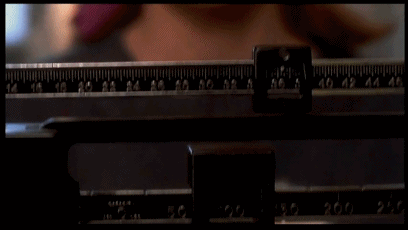Wouldn’t it be amazing if there was a food that didn’t have any fat, cholesterol, sugar, or any calories at all for that matter? Well, folks, such a substance truly exists: hello, Olean. But before you jump out of your seat, let’s take a deeper look at the pros and cons of this product.
Olean, the marketable brand for Olestra, is a calorie and cholesterol-free fat substitute. Though not as mainstream as Stevia, aspartame, or Sweet n’ Low, Olean is found in foods like fat-free potato chips, french fries, and corn chips. This substance serves as a substitute for cooking oil, shortening and butter, convincing consumers that these indulgences are guilt-free.
But should we trust what we see on the label?

Gif courtesy of giphy.com
According to a recent study by Purdue University, rats that were fed potato chips with Olean as part of a high-fat diet ate more than the control group eating regular potato chips. The dieting rats also gained more weight than the control group. What does this mean for humans? DON’T EAT FAT-FREE FOODS. YOU WILL GAIN WEIGHT.

Gif courtesy of giphy.com
But why? This seems counterintuitive to what weight-loss ads are telling us. Recent studies have been finding out that these fat-free fads are ironically hindering weight loss. ABC News’ medical contributor, Marie Savard, reported a study that showed people who consumed at least one diet drink a day could increase their chances for weight gain.
“There’s something about diet foods that changes your metabolic limit, your brain chemistry,” Savard said, although she also says that more research needs to be done in order to further uncover the biological mechanisms involved.
“Fat substitutes can interfere with the body’s ability to regulate what it eats, and that can result in overeating,” said Susan Swithers, main author of the Purdue study. “Our bodies make predictions on what to prepare to digest based on taste and how food feels in our mouth.” When you take that bite into a nice, greasy bacon, egg and cheese, the body is preparing to digest a calorie-dense substance.

Gif courtesy of giphy.com
When we eat fat-free foods, the body gets the idea that we are going to have this fatty food, but when it doesn’t come, the metabolism gets confused.
Savan and Swithers identify two reasons for why we gain weight eating these calorie-free foods: they screw up our metabolism, and because we think we are not eating any calories, we might overindulge.
Still not convinced? Time named Olean as the 38th worst invention in 2010, citing the chemical’s atrocious side effects including gas, uncomfortable cramps and loose bowels. Somehow, the FDA has kept Olean as a legal food additive. I guess if you want diarrhea and a smelly odor, the option is there for you.

Gif courtesy of giphy.com
Brands use this substance to feed into the American idea that fat-free equates weight loss, an idea that is actually proven to not be true. The next time you see a bag of Lay’s that says “fat-free,” don’t buy into it. If you’re going to go for the chips, commit to it and let your body naturally take care of the rest. Just eat well the next day.
Olean poses a particular threat to those college kids living off chips who think they’re being healthy by choosing the fat-free option. Think again friends. Next time you think of reaching for that Doritos Light, ask yourself if its really worth the uncomfortable GI.
Here are a few brands that use Olean:
- Lay’s Light Original
- Lay’s Light KC Masterpiece BBQ
- Doritos Light Nacho Cheese
- Ruffles Light Original
- Ruffles Light Cheddar & Sour Cream
- Tostitos Light Restaurant Style
- Fat-Free Pringles
- Fat-Free Bar-B-Q Pringles
- Fat-Free Sour Cream and Onion Pringles
Don’t be fooled by labels, and make smart consumer choices!


